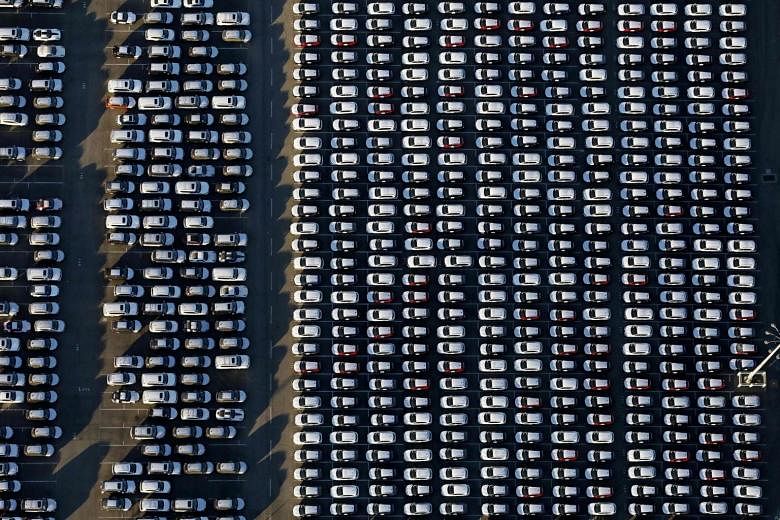The tit-for-tat trade war brewing between the United States and China, which has unsettled markets and stirred anxieties over the global economy, was squarely criticised at a meeting of global finance chiefs.
Prominent US economist Jeffrey Sachs urged the world to speak up against President Donald Trump's decision to impose tariffs on billions of dollars of Chinese goods, charging that it was an "economically illiterate" geopolitical power play.
"It is the US trying to stop China's growth. This is about US geopolitics, how to stay No. 1," he said at the International Monetary Fund (IMF)-World Bank meetings yesterday. "It should be stopped, and it should be resisted," Professor Sachs said in a scathing tirade against Mr Trump. "The US is breaking international trade rules right and left."
Prof Sachs, director of the Centre for Sustainable Development at Columbia University, was on a panel discussing growth challenges confronting Asia.
Speakers stressed that the open, multilateral trading system has been central to Asia's growth.
Professor Huang Yiping of Peking University's National School of Development said: "This region is built on trade openness and that will still be very necessary for us to continue. And not just open trade, but open investment, open migration and open exchanges of ideas.
"That is fundamental to push ahead growth in the region."
He said that while Beijing has tried hard to reach an agreement with Washington, "after five months of negotiation, you will see it is almost impossible partly because some of the demands are not very reasonable, and partly because the President himself changes his mind".
And China should not let simmering tensions with the US derail it from its own progress, he said.
"What really is important for China is to focus on its own task. Look at the 40 years of reform, what made China's economy successful - market reform and in-tegration into the international system," Prof Huang said. "China should just keep doing that."
Asian Development Bank president Takehiko Nakao and the Reserve Bank of India's former governor Y.V. Reddy also spoke about the impact that the trade war may have on the global supply chain.
An escalation will disrupt these networks, a very important basis of growth, especially in East Asia, and impact investment and consumer confidence in the region, noted Mr Nakao.
But, he added, there has also been a strong growth in consumption that can help buoy countries.
IMF deputy managing director Mitsuhiro Furasawa reiterated that with the outlook for trade weakening, Asia needs to rebalance its growth and depend less on slowing demand from outside the region.
"Intra-regional integration could become a new engine of growth and help offset any decline in global trade," he said.
Prof Sachs said the world must not allow itself to be bullied out of the international legal system, pointing out that there are rules and dispute settlement procedures for economies to settle differences.
The US has accused China of unfair trade practices, and criticised its key competitor for stealing American jobs. But such accusations, he said, are "completely trumped up".
"They are grossly exaggerated. They are for the convenience of this American security vision. If there were really complaints, take them to the World Trade Organisation," said Prof Sachs.
"Let's not be quiet about it because if you let this kind of extreme economically illiterate, geopolitically dangerous view prevail, we are going to get into a hell of a lot of trouble."
He added: "This is not going to end quietly or easily, and Asia has already had trillions of dollars of wealth written off the stock market in the last year. Enough. Somebody has to say no."

